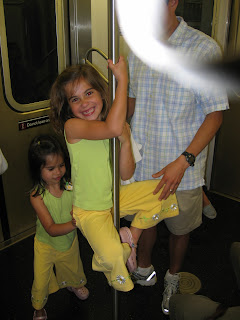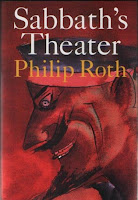 The Subway is an intriguing quasi-fictional appropriation of reality that all New Yorkers can identify with. The Subway contains the full sweep of humanity in its passengers, as they jostle or sit at safe distances or stare into the passing faces. This panorama of society contains the myriad human interactions that make up civilization, from shoving to giving up your seat to flirting.
The Subway is an intriguing quasi-fictional appropriation of reality that all New Yorkers can identify with. The Subway contains the full sweep of humanity in its passengers, as they jostle or sit at safe distances or stare into the passing faces. This panorama of society contains the myriad human interactions that make up civilization, from shoving to giving up your seat to flirting.
Minute gestures of the passengers lead one to observations of humanity. For the protagonist is like Everyman of Pilgrim’s Progress. He goes about his quest to arrive at his destination, and struggles with the conflicts of finding his metro card, missing a train by a second, being crowded into a smelly homeless person; we see his personality revealed, and as people and especially as New Yorkers, we can identify with his quest.
Within The Subway, all the glories and incongruities of American democracy are present. From the homeless to the elite, at any hour of the day the vast swell of humanity is present in all its odors. All people in the hunt for seats have the equality that makes America great.
Who wrote this fascinating study of the human psyche and deployed his acute and pointed observations on human nature? Who depicted the possible scenarios that could happen among such a group of people? No one. This novel doesn’t exist.
How is it possible that no one has written this book yet? I can’t be the only New Yorker who on their endless commute sometimes wondered about their fellow passengers, about where they were going and why. Storytelling has its roots in such unparalleled access to people. People who are too immersed in their experiences to put up facades. The subway is humanity raw and uncensored.
Considering people’s (and my own behaviors) on the subway, I’m convinced it is a minefield of character and of situation that is integral to a great story.
 Musicians…
Musicians…
 Mother with child, woman in pink, and Hasidic Jew
Mother with child, woman in pink, and Hasidic Jew
 Nursing mother
Nursing mother
 Young lovers
Young lovers
 Homeless man
Homeless man
 Young pole dancers
Young pole dancers
These photos from the NYC subway make great character studies. It’s seems so much like a book already written to me. But I checked on the Internet, where all things are true, and The Subway hasn’t been written. Yet.
 To my own surprise, I have finished a good contemporary novel. I suspected it might be one, but then I was warned it got slow in the middle. I reserved judgement until I shut the covers last night. Bel Canto is an engaging and graceful read by award-winner Ann Patchett.
To my own surprise, I have finished a good contemporary novel. I suspected it might be one, but then I was warned it got slow in the middle. I reserved judgement until I shut the covers last night. Bel Canto is an engaging and graceful read by award-winner Ann Patchett.
 To my own surprise, I have finished a good contemporary novel. I suspected it might be one, but then I was warned it got slow in the middle. I reserved judgement until I shut the covers last night. Bel Canto is an engaging and graceful read by award-winner Ann Patchett.
To my own surprise, I have finished a good contemporary novel. I suspected it might be one, but then I was warned it got slow in the middle. I reserved judgement until I shut the covers last night. Bel Canto is an engaging and graceful read by award-winner Ann Patchett.




